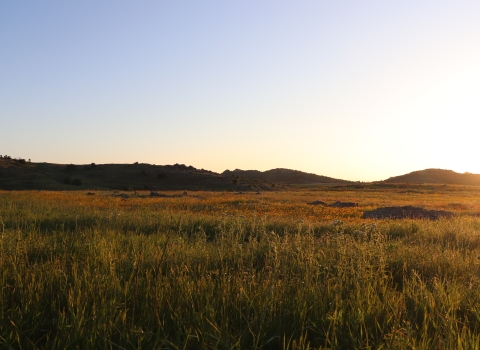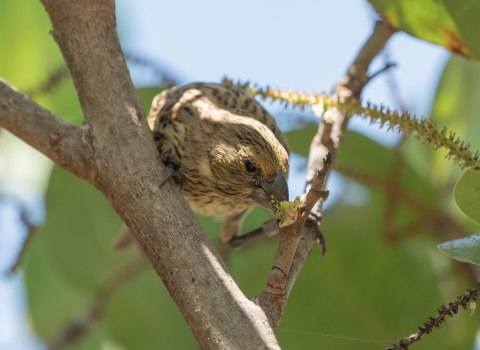Thanks to a successful conservation partnership involving the U.S. Fish and Wildlife Service, the U.S. Forest Service, and the Puerto Rico Department of Natural and Environmental Resources, a tiny orchid native to Puerto Rico, Lepanthes eltoroensis, is being removed from the Endangered Species Act.
Lepanthes eltoroensis, an orchid restricted to one general area within El Yunque National Forest in Puerto Rico at elevations above 2,461 feet, has recovered and no longer meets the definition of a threatened or endangered species. A threatened species is one that is likely to become endangered in the foreseeable future throughout all or a significant portion of its range. An endangered species is one that is in danger of extinction throughout all or a significant portion of its range.
“Conservation partnerships are key to making the Endangered Species Act work, and in this case it has worked very well,” said Leopoldo Miranda-Castro, Regional Director for the Service. “The recovery of this species would not have been possible without the support of the U.S. Forest Service and the Puerto Rico Department of Natural and Environmental Resources.”
“El Yunque National Forest is grateful to have such a great partner as the U.S. Fish and Wildlife Service,” said Keenan Adams, Forest Supervisor. “We’ve been collectively working together for decades in El Yunque on recovery of endangered species. Our partnership will continue for monitoring of the Lepanthes eltoroensis post delisting.”
When first listed in 1991, the orchid’s estimated population was around 140 individuals. Currently, it is estimated that there are around 3,000 individuals, including over 300 new plants found during surveys conducted after Hurricane Maria in 2018.
Lepanthes eltoroenis is an orchid that lives on moss-covered trunks of several tree species within the El Yunque National Forest. The plant measures no more than 4 centimeters in length with a single leaf and three to seven slender stems.
Since the species was listed, tighter laws and forest management practices have resulted in stable growth rates and a reduction or elimination of threats from habitat destruction and modification due to forest management practices. The entire range of the species is now protected as a wilderness area wilderness area
Wilderness areas are places untamed by humans. The Wilderness Act of 1964 allows Congress to designate wilderness areas for protection to ensure that America's pristine wild lands will not disappear. Wilderness areas can be part of national wildlife refuges, national parks, national forests or public lands managed by the Bureau of Land Management.
Learn more about wilderness area .
The Service uses the best available science to make Endangered Species Act (ESA) listing determinations. A Species Status Assessment report (SSA), produced by the Service in 2019, documented that the main threats to the species may be reduced or eliminated. Additionally, recent population estimates indicate there are significantly more individuals now than at the time of listing.
The Service prepared a draft Post-Delisting Monitoring plan (PDM plan) when it published the proposal to delist the species. The PDM plan calls for monitoring the status of the species for a minimum of five years upon delisting and would inform the Service of any changes in population size or emergence of threats to the orchid’s viability. No comments were received on the draft PDM plan, so the Service is finalizing the PDM plan along with the finalization of the proposal to delist the species. The final delisting for Lepanthes eltoroensis takes effect July 16, 2021.
Addresses
The proposed and final rules, the post-delisting monitoring plan, and the comments received on the proposed rule are available on regulations.gov in Docket No. FWS–R4–ES–2019–0073.
More information
- Edwin Muñiz, Field Supervisor, U.S. Fish and Wildlife Service, Caribbean Ecological Services Field Office.
- If you use a telecommunications device for the deaf (TDD), please call the Federal Relay Service at (800) 877–8339.
- Frequently Asked Questions


